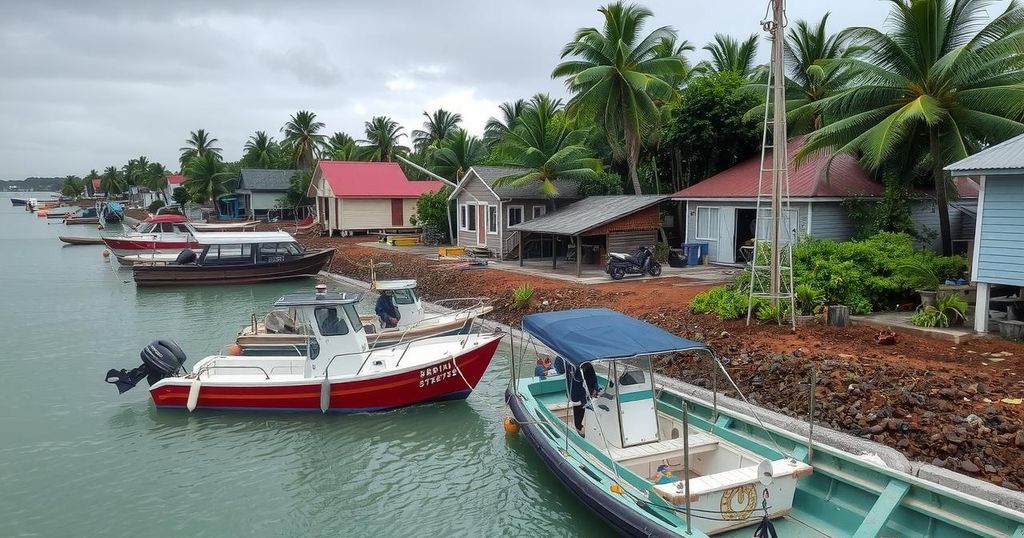Tropical Storm Dikeledi Compounds Challenges in Mayotte After Cyclone Chido
Mayotte is currently facing severe disruptions from Tropical Storm Dikeledi, following the deadly impact of Cyclone Chido in December. The region, struggling with socio-economic challenges, must bolster its emergency responses and rebuild its infrastructure, necessitating both local and international support for effective disaster management and climate resilience.
On January 13, 2025, Mayotte, a French territory in the Indian Ocean, faces significant challenges as Tropical Storm Dikeledi makes landfall, exacerbating the devastation from Cyclone Chido that occurred just a month prior. With heavy rains and high winds, the storm forces residents indoors, complicating recovery efforts from December’s cyclone that resulted in numerous fatalities, significant injuries, and extensive property damage.
Mayotte, often dubbed as France’s poorest department, displays vulnerabilities to tropical cyclones, showcasing the fragility of its infrastructure and the dire need for improved disaster preparedness. An alarming number of people remains unaccounted for from Cyclone Chido, while the new storm threatens to derail critical rebuilding processes. The local government has issued emergency protocols, urging communities to gather essential supplies and secure refuges while emergency responses are mobilized.
International aid is anticipated to be vital for Mayotte’s recovery; however, logistical challenges of reaching this isolated region present a significant barrier. The recurring storms highlight the urgent need for a comprehensive disaster management strategy. Furthermore, the situation underlines the socio-economic hurdles, as Mayotte grapples with high unemployment rates, inadequate healthcare, and insufficient housing—conditions that amplify the impact of natural disasters.
As recovery efforts commence, it is crucial for response strategies to not only address immediate necessities but also foster resilience in the face of increasing climatic threats. The international community is called to enhance support through financial aid and collaborative efforts focused on climate adaptation—an endeavor that will benefit vulnerable regions worldwide. Ultimately, the resilient spirit of Mayotte’s residents may shine through these hardships, reflecting hope for recovery and long-term sustainability against future adversities.
Mayotte, located in the Indian Ocean, is recognized for its picturesque landscapes but remains vulnerable to the impacts of tropical storms. The recent occurrences of Cyclone Chido and Tropical Storm Dikeledi highlight the geographic and climatic challenges that small island territories face, particularly as climate change increases the frequency and intensity of severe weather. The territory’s socio-economic struggles also play a significant role in how effectively it can respond to and recover from such disasters, revealing the intersections between natural disasters and regional poverty.
In summary, the recent natural disasters in Mayotte illustrate the pressing need for resilient infrastructure and comprehensive disaster response strategies in vulnerable regions. As Tropical Storm Dikeledi complicates recovery efforts from Cyclone Chido, the focus must remain on international collaboration and support. Strengthening regional capacities to withstand the impacts of climate change is imperative in ensuring that communities can recover and thrive amidst ongoing environmental challenges.
Original Source: www.travelandtourworld.com




Post Comment